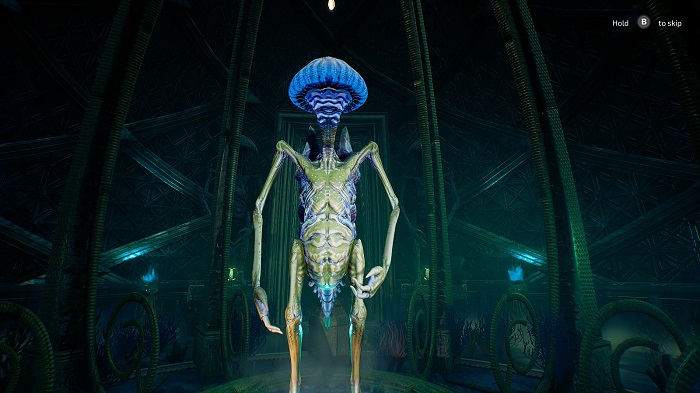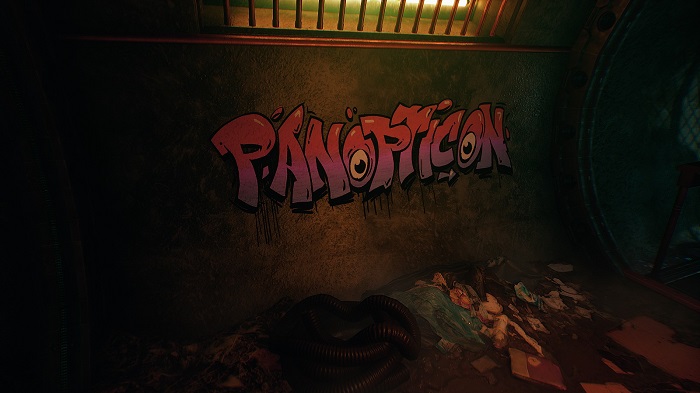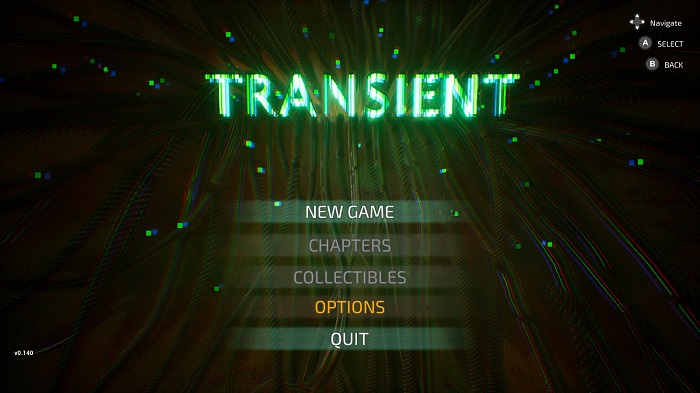Subjective:
Developer Stormling Studios, along with publisher Iceberg Interactive, present the first-person sci-fi horror game Transient for review. Billed as a meeting of H.P. Lovecraft and cyberpunk, the player assumes control of protagonist Randolph Carter. What exists in shared physical reality, dimensions beyond, or in Carter’s mind begins as a twisting mystery into different worlds. Carter must investigate each new surrounding his consciousness finds itself in, and hope that one further trip down the rabbit hole will give him the answers he’s looking for.
Objective:
Transient is a single-player only experience. It is played primarily in first-person with a few stylistic digressions into a third person view which do not alter the control scheme. The player must investigate the environments carefully with Carter as simple actions such as opening a door will require him to be standing an acceptable distance away from the frame. Various diaries, audio logs, and other environmental clues are available for the player to deduce what’s going on in this world. Additional hacking puzzles and environmental challenges will require the player to observe the consequences of each action for hints on what to do. An additional accessory called a PHI (perception heightening implant) will help point out clues and mark destination points as the plot rolls on.

Assessment:
I was a little excited to play Transient as Stormling Studios, the developer, created the first game I reviewed for this website. Conarium was an intriguing, if limited, puzzler that allowed a good bit of freedom in roaming its frozen halls. Transient may be in the same vein as Conarium, but is a much more limiting experience with almost none of the natural dread and no high point of any emotion to speak of.
A big problem with this is that Transient takes a cue from Inception (along with too many other products) to present a world within a world within a dream that may be cosmic shenanigans or might not. Each style of world, or potential reality, is done decently well without a gameplay or character hook to follow. I was emptily perplexed, instead of intrigued, about how protagonist Carter starts off as a generic sci-fi protag, then looks like a deposed ruler of underwater, all while a similarly shifting character stayed just out of reach as Carter screamed her name.
The change in character model for Carter, along with the environment, does not result in similar gameplay changes. You’re always going to be walking or lightly trotting among linear paths with different art direction and the same often frustrating issues with opening doors. There were many times I thought I had enough distance from the door, or cabinet, or alien statue thing, only to hear the clank of the opening against my virtual frame. When there are puzzles, they’re either decently implemented from environmental triggers, or require fiddling with no destination in mind due to the lack of clues.

So I walk down linear corridors, fumble my way through a puzzle, hear Carter scream “Alice,” and quickly grow bored with the rigid structure. One of Transient‘s few ways of breaking the monotony is with the PHI which runs on a terminally low battery life and puts a grid on the world to investigate. I found out quickly this is an aesthetic annoyance first and gameplay device second. Rare is the clue which requires using PHI to acquire, and there were odd technical snafus like waypoints and destinations not appearing on PHI until I was on the same level of height as the target. You’d think that Transient being such a linear game this would not have been annoying, but another aesthetic oddity lay in the interaction icons blending into the environments, and when I’m faced with a wall of similar doohickeys and alien whatsits the bad interaction design almost feels intended to prolong a poor experience.
A final note on the voice acting, which was a double-edged experience in Conarium and has diminishing returns here. Carter, even when he’s in his apparent waterlogged space ruler form, speaks with the same gravelly nonchalance. This worked well in the similarly styled Observer from Bloober Team because they had Dutch legend Rutger Hauer on hand to lend every line subtle shifting gravitas. Ryan Cooper, who voices Carter, isn’t capable of more than the generic. That’s serviceable to a point, but “more audio” isn’t what could have given Conarium, and now Transient, greater weight. It’s a more which manages to subtract, a true cosmic feat indeed.
Transient was reviewed using a developer-provided code on the PC using the Steam platform.
The Review
Transient
Hard core fans of this sort of science-fiction horror game might want to check this out to satiate their curiosity. I write to them, please wait for a sale. Conarium was a great effort that had sequences which still stick with me. Transient is a weaker follow-up in every way, and only an experience for the terminally curious.
PROS
- As a visual experience, Transient's levels fold into multiple compelling types of environments that carry a promise of dread.
CONS
- The promise of dread is quickly quashed with painfully linear levels cluttered with nonfunctional doohickeys and the tool used to figure out which one you need to use works sporadically.
- Cooper isn't compelling enough to carry one level of reality, let alone the suggested several.



